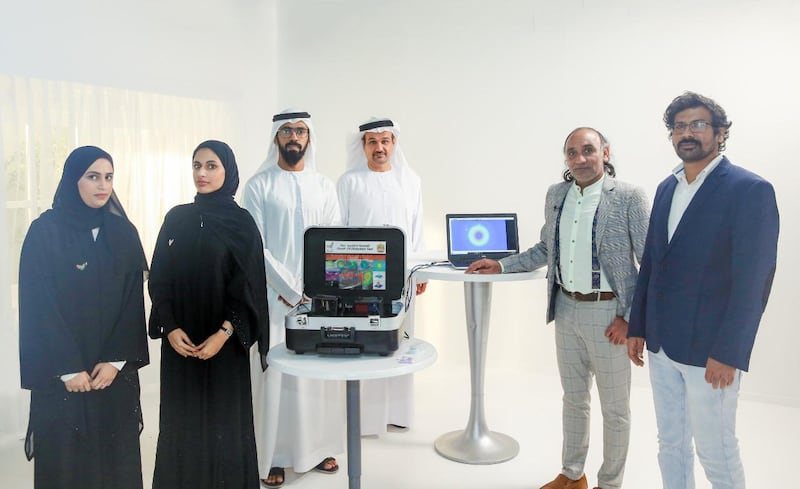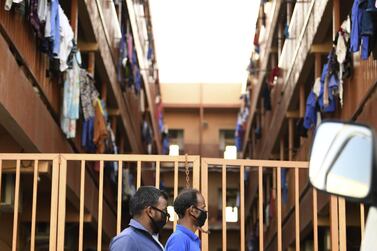In the past few months, countries have raced to find vaccines and treatments for Covid-19.
From the US to the UK, potential vaccines are being tested out. Recently, scientists in the UAE have also made extraordinary advances in treatment and testing. Abu Dhabi Stem Cell Centre unveiled a new type of aerosol stem-cell therapy that has been tested on 73 patients with mild to severe symptoms, all of whom recovered. This new treatment helps lung cells regenerate faster and is meant to be administered alongside other existing protocols.
Among the recovered patients who underwent stem-cell therapy is Abdullahi Rodhile. A father of 10 with underlying conditions, he had to be put in an induced coma for nearly three weeks. "I was brought back to life." he told The National. "I was dead and now I am alive."
And on Tuesday, QuantLase Imaging Lab, the medical research arm of Abu Dhabi-based International Holdings Company, announced the development of a rapid laser coronavirus test with the potential to carry out mass screenings and deliver results in seconds. The new technology could, in the coming months, replace swab tests, which can take hours to process.
These new treatments, vaccines and testing methods have yet to be accessible on a large scale, and require further work. But they are a clear step towards the innovation necessary to diminish the pandemic’s threat to daily life. For several years now, scientific research worldwide has suffered from a lack of resources and funding. In Europe, home to many renowned institutions of medical science, governments have repeatedly struck blows to research programmes through immigration restrictions, budget cuts to universities and a lack of public investment in the sciences. In the US, the Trump administration has been criticised for its 2018 dissolution of Washington’s pandemic response team, a taskforce put in place by the Obama administration after the discovery of Ebola.
This pandemic has proved the importance of promoting strong research institutions and scientific advancement. It has also given more space for medical and scientific experts in the media landscape. Their contribution is vital to combating conspiracy theories, providing trusted information and raising awareness. Nurses, doctors and innovators have now become the role models and heroes of the new generation.
But while renewed interest in scientific advancements is pivotal to global public health and to our economies, the focus on coronavirus has, unfortunately but inevitably, come at the cost of furthering research in other essential fields. The Bill and Melinda Gates Foundation has announced it will give its “total attention” to the coronavirus pandemic. Similarly, the European Union has decided to allot an additional €675 million from the Horizon 2020 programme, the biggest research and innovation fund in Europe, to research into the coronavirus, with pandemic investment from the fund totaling €1 billion.
Global policymakers, the scientific community and civil society are all part of a delicate balancing act between allocating the resources necessary to find a path out of the coronavirus pandemic, and not allowing other priorities to fall to the wayside. Resources are limited, but when used carefully and effectively, we can spur innovation on all fronts.






